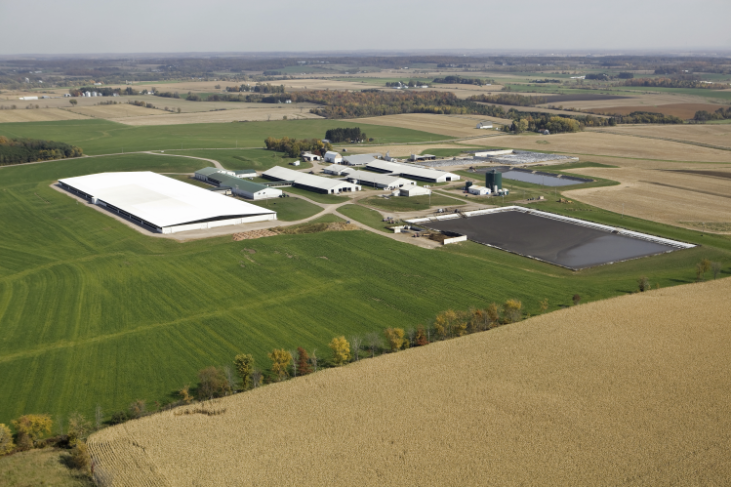I worked with a family farm several years ago in which the owners had changed the business structure, invested in facilities, increased the herd size and made plans for their retirement, only to find that their successors did not see owning and managing a dairy as their future. When the transition stalled, it took three facilitated meetings before the successors were able to tell their parents they did not want to dairy.
Unspoken expectations turn into assumptions, and family members may find themselves making decisions that are not in the best interests of the owners, the successors or the farm business. Asking a few questions and engaging in intentional conversations around succession planning – even if they are awkward and uncomfortable – would have saved this farm from uncertainty and unnecessary spending.
Conversation avoidance is common
There are many reasons family-owned businesses avoid conversations around succession planning. The owner generation may see planning as boxing them in and constraining their flexibility to make decisions. They may see the succession as something that should be natural or organic. Farm families may avoid formal planning because it takes too much time or brings up too many “what if” questions that are not easily answered. The owner generation may fear hearing that their children don’t want to follow in their footsteps or that they have very different plans for the operation once they are in charge.
Planning can also unearth sensitive topics or conflicts thought to be successfully buried. On the extreme end, planning forces farmers who value their independence and control to share decisions and financial information with their children. A succession plan that involves the two generations sharing power over a period can feel threatening to the owner generation who has experienced decades of doing it all on their own.
The successor generation also has reasons to avoid the planning process. The successor may want the transition to happen, but they may feel self-doubt about their abilities to take over the business. The fear of being the generation that loses the family farm is very real, no matter their level of desire to take the leadership reins. Not knowing whether they will be able to inherit, afford to purchase or at least control the land base needed to continue the business is one of the biggest unknowns for the successors. Many times, children can shake off a parent’s anger, but feeling a parent’s disappointment can cut deeply and forever.
Personal relationships are affected
Both generations may be unsure how a transition will change their relationship with their spouse or romantic partner. The owner generation, stepping back from being the boss, may need to plan how more of their time will be spent in activities with a spouse. The successor may be spending longer hours at the farm and less time with their spouse, partner and/or family.
The succession will also impact, or at least raise questions around, family finances and how this may change each families’ lifestyle. While it may seem straightforward, a discussion on how everyone will be compensated is often avoided.
So why don’t farm families put these seemingly practical and logical concerns out on the kitchen table and work through them? It’s the same reason we all struggle with talking about hard things. Admitting our wants, needs, fears and expectations for something shows our vulnerability. It’s hard to think about showing vulnerability in a workplace where you’re not related to anyone. It can be more difficult in a family-farm business because there is no going home for the weekend after an awkward conversation.
Bringing clarity to your intentions – first for yourself and then clearly communicating them to others in the family and business – is necessary. In her book, Dare to Lead, Dr. Brené Brown, research professor at the University of Houston, describes how many people avoid clarity believing they are being kind, when they’re actually being unkind and unfair. Brown also recognizes it will be awkward and uncomfortable. Her advice: “Stay awkward, brave and kind.”
Owner considerations
How do you start organizing your thoughts around your succession intentions? A few areas to consider for the owner generation include:
- Legacy – is it a priority for the land to stay in the family name? Is it important to continue to be a farm business? These questions seem similar but can be at odds. What if no one in the family wants to farm the land? Which of these is a priority?
- What are the financial needs of the owner generation? Do they need full market value to support their later years? Or are they financially able to provide discounts to the successor? Do these discounts depend on whether the successor is family?
- Is the owner generation open to different enterprises? Does it matter if these changes start while they’re still involved in the business or only after they step away?
- How do the owners feel about inheritance? Does it need to be equal in dollar value or a fair distribution that provides a path for the successor to continue?
- How much labor and management do they want to provide during and after the transition of assets?
- Does the farm currently have debt and how might this impact the transition plan?
Successor considerations
The successor generation should consider their intentions as well.
- Do they want to take over the farm?
- Are they willing to make financial sacrifices to invest in the farm or work for farm assets to reach their ownership goals? Or do they have other financial goals they need to balance with the farm investments?
- Do they want their children to be involved in the farm in age-appropriate work and responsibilities? Do they want their children to have opportunities to participate in activities, sports or other non-farm interests?
- Are they considering expanding or reducing the size of the current operation? Are they open to other enterprises?
- How ready are they for more responsibility? Do they need additional training or skills before taking over certain responsibilities?
- What are their thoughts on time away from the farm, time off and vacations?
- What are their feelings on how their unpaid or not fully paid contributions of labor and management are recognized when a price is negotiated or inheritance decisions are made?
Owners and successor and their spouses/partners should answer these questions first on their own for their own clarity, then discuss them with each other and finally share them with the other generation.
I would encourage farm families, as they start their farm succession conversations, to name or call out how this might be awkward at times, to have the courage to be clear in their intentions and to be kind in their communication of those intentions.
Cultivating Your Farm’s Future: A workbook for Farm Succession Planning in Wisconsin is a workbook available through the University of Wisconsin – Madison Division of Extension. It includes worksheets to help clarify intentions.






